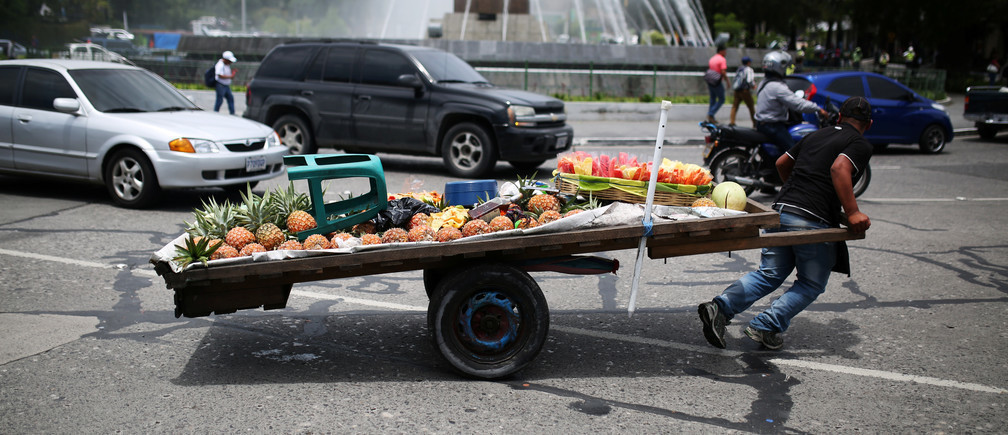Three Ways to Fix Latin America’s Public Finances
A former finance minister of Paraguay argues that feasible reforms can yield important results.
Governments in Latin America and the Caribbean are facing a perfect storm of economic and social conditions as they seek to accelerate their post-pandemic recovery. Vulnerable communities need more help in the face of rising inequality and poverty. Health, education and other services need more resources. Governments must find a way to grow equitably and sustainably amid rising inflation, weaker world demand and high debt levels.
The challenge is even more pronounced in countries with a low tax-to-GDP ratio—as is the case in many countries in the region—since there is a positive correlation between the quality of public services and the tax burden.
The best way out of this conundrum is to move simultaneously on three fronts: Governments must improve spending efficiency, fight tax evasion and bring the vast informal economy out of the shadows—a process often referred to as “economic formalization.”
The good news is that these actions are more feasible than many people believe—and they can provide valuable economic and political returns.
First, evidence shows that governments can do more with what they already have. Our research has estimated that inefficiencies in public sector procurement, providing benefits and subsidies to those who do not need it (a phenomenon known as “leakages”), along with other forms of waste amount to around 4.4% of GDP in the region. This is roughly $200 billion per year—enough to eliminate extreme poverty in these countries. Yet efficiency tends to be overlooked because of the misconception that the rewards are small, that it is too difficult to implement and that it does little to help achieve a government’s larger political goals. However, efficiency can yield enormous savings in the short term and give governments the credibility they need to embark on more difficult reforms.
Take procurement, for example. By going digital and modernizing paper-based procurement systems, Argentina and Peru saw average cost reductions of 4% and 10%, respectively. In Brazil, a switch to centralized public procurement using electronic catalogues of pre-approved products and suppliers led to a 10% reduction in the average price paid for goods at the federal level and 20% in the city of São Paulo. In Colombia, digital tools helped cut the average time to process purchase orders from 31 days to under 8 hours.
If there ever was an easy fiscal win-win to free up resources while improving government services, this is it.
A second strategic area for improvement is reducing tax evasion. The average level of tax evasion in Latin America and the Caribbean is 5.6% of GDP. Many countries have obtained good results by modernizing their tax administrations with data analytics and other digital tools. For instance, the introduction of e-invoicing in Argentina, Brazil, Mexico and Uruguay, among others, led to increases in tax collection of up to 11% for several years after implementation. Similarly, the implementation of error-detecting algorithms in Colombia led to more than 100,000 taxpayers filing value added taxes and for the first time. Half a million new individuals started filing their personal income taxes thanks to these algorithms. Tax administrations can use big data and data analytics to facilitate tax compliance by pre-filling and pre-filing tax forms. In Chile more than nine out of ten taxpayers now use pre-filing to pay their value-added taxes, with a reduction of 60% in processing time.
How to combat informality
The third strategic area of focus is tackling widespread informality. Labor informality in the region surpasses 60%, and a whopping 90% of firms are informal, hurting productivity and increasing inequality.
Informality has a real and pernicious impact on people’s lives. I was finance minister of Paraguay when the Covid pandemic hit. We shut down the economy for almost three months to keep our people safe. We needed to roll out an assistance program, and we had to do it quickly. Developed economies typically use tax rolls to determine who gets financial assistance. This option could not work in Paraguay, with so many workers, from street vendors to agricultural laborers, operating outside the tax system. For many, not working meant not making money.
We used a process of elimination to determine who got transfers: Government employees were ineligible, as well as workers who contributed to social security or paid income taxes, and so on. The reasoning was that they had sources of income and were less likely to need emergency assistance. Though imperfect, the workaround prevented many from going hungry. On the other hand, it reinforced the sense that those who paid their taxes and played by the rules were made to shoulder a bigger share of the burden without getting some of the benefits.
Read More @Americasquarterly
260 views










